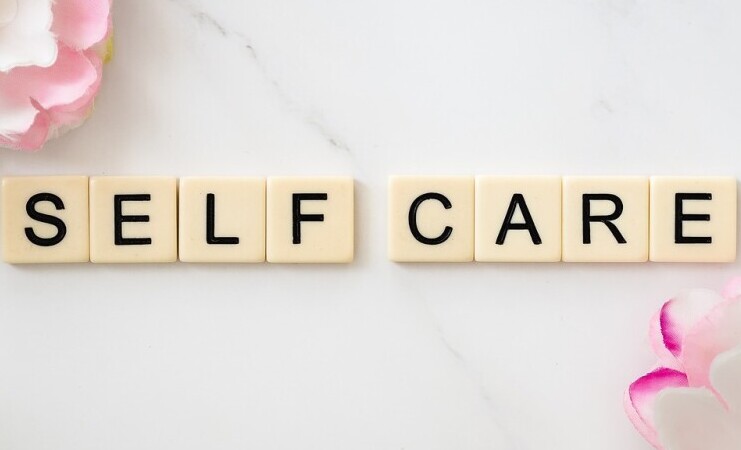 Self-discipline is like the secret sauce behind most success stories. It’s the ability to push yourself to do what you should do, even when you don’t feel like it. It’s not about punishing yourself or missing out on fun. Self-discipline is more about making choices that are better for you in the long run.
Self-discipline is like the secret sauce behind most success stories. It’s the ability to push yourself to do what you should do, even when you don’t feel like it. It’s not about punishing yourself or missing out on fun. Self-discipline is more about making choices that are better for you in the long run.
People often think self-discipline means having superhuman willpower, but that’s just a myth. Willpower is part of it, sure, but understanding and planning play a huge role too. Think of self-discipline as a skill that you build over time. It’s not something you’re born with—it’s something you develop.
 So, why all the fuss about self-discipline? The benefits are huge. In your personal life, self-discipline helps you stick to healthy habits, improve your relationships, and reach personal goals. Professionally, it can boost your productivity, help you manage time effectively, and open up new opportunities.
So, why all the fuss about self-discipline? The benefits are huge. In your personal life, self-discipline helps you stick to healthy habits, improve your relationships, and reach personal goals. Professionally, it can boost your productivity, help you manage time effectively, and open up new opportunities.
Behind self-discipline lies some pretty cool psychology. It’s about creating a balance between your immediate desires and your long-term goals. Delayed gratification, or choosing to pass up a smaller, immediate reward for a bigger, future reward, is central to this. This takes practice, but once you get the hang of it, it can change your life.
There’s a ton of benefits to having strong self-discipline. We’re talking better focus, improved mental health, and increased resilience. You become better at handling stress, and your confidence gets a major boost. Self-discipline isn’t just about saying ‘no’ to temptation. It’s about saying ‘yes’ to your goals and dreams.
Building Self-Discipline: Practical Strategies
Setting clear and achievable goals is where it all starts. Without a target, you’re just aimlessly shooting arrows. Your goals should be specific, measurable, attainable, relevant, and time-bound (SMART). No more vague goals like ‘I want to be healthier.’ Instead, try something specific like ‘I will exercise for 30 minutes, five days a week.’ This gives you a clear path.

Routines are your best friend when it comes to self-discipline. Plan your days and stick to that plan. This doesn’t mean you’re being rigid; it means you’re being smart with your time. Start small. Even a consistent morning routine can set a positive tone for the rest of the day. Think about simple actions like making your bed, having a healthy breakfast, or taking a few minutes to plan your day.
Habits are the backbone of discipline. Building new, positive habits can make staying disciplined a lot easier. Breaking bad habits is just as critical. Replace your not-so-great habits with better ones. If you find yourself wasting hours on social media, try setting limits or scheduling specific times for it. That way, you can use your time more wisely without missing out on the fun.
Mindfulness and meditation can do wonders for self-discipline. These practices help you stay present and make conscious choices. Just a few minutes a day can improve your focus and reduce impulsive decisions. They aren’t just for the spiritually inclined; anyone can benefit.
Staying motivated can be a challenge, but there are tools and techniques to help. Motivation fades, but discipline sticks around. Use reminders, apps, or even accountability partners to keep yourself on track. Celebrate your small wins and keep your eyes on the bigger picture. Stay patient and remember that progress is progress, no matter how slow.
Overcoming Obstacles: Handling Challenges in Self-Discipline
Every journey has its bumps, and self-discipline is no different. Recognizing common obstacles is the first step to overcoming them. Distractions, lack of motivation, and the ever-tempting procrastination can throw you off your game. These hurdles are normal but can be managed.
Managing stress is crucial. Stress can sap your energy and focus, making self-discipline more challenging. Find stress-relief techniques that work for you. It could be anything from taking a walk, practicing deep breathing, or engaging in a hobby. The key is to have a go-to method to calm your mind and reset your focus.
Setbacks are inevitable. You might miss a workout or indulge a little too much one weekend. The important thing is not to dwell on these slip-ups. Learn from them, adjust your strategy, and keep moving forward. Self-discipline is a marathon, not a sprint. Resilience is your best friend here.
Support systems are underrated when it comes to discipline. Having someone to hold you accountable can make a big difference. Whether it’s a friend, family member, or a coach, having that external support can keep you on track when your motivation dips.
Remember: It’s all about progress, not perfection. Small, consistent efforts will add up over time. Don’t be too hard on yourself and celebrate the small victories. The journey to mastering self-discipline is personal and unique to you. Embrace the challenges as part of the growth process.
Sustaining Self-Discipline: Long-Term Success and Personal Growth
Continuous improvement is the name of the game. Building self-discipline isn’t a one-time project; it’s an ongoing process. Always look for ways to refine and enhance your strategies. Whether it’s tweaking your routine or setting new goals, stay adaptable.
Tracking your progress keeps you accountable. Keep a journal or use an app to monitor your achievements. Seeing your progress can be incredibly motivating and helps you stay focused on your long-term objectives.
Don’t forget to celebrate milestones. Recognizing and celebrating your achievements—no matter how small—reinforces positive behavior. It gives you something to look forward to and creates a positive feedback loop.
Adapt and evolve your strategies over time. What works today might not work tomorrow. Be open to change and willing to experiment with new techniques. Self-discipline isn’t about rigidly sticking to a plan; it’s about finding what works best for you at any given moment.
 The impact of self-discipline goes beyond just achieving goals. It influences your overall well-being and personal growth. You’ll find that your confidence grows, your stress levels decrease, and your resilience improves. These benefits ripple out, positively affecting all areas of your life.
The impact of self-discipline goes beyond just achieving goals. It influences your overall well-being and personal growth. You’ll find that your confidence grows, your stress levels decrease, and your resilience improves. These benefits ripple out, positively affecting all areas of your life.
Real-life stories can be incredibly inspiring. Look at individuals who have mastered self-discipline and take notes from their journeys. Their experiences can provide valuable insights and motivate you to stay committed.
Click on the link above for an exc
